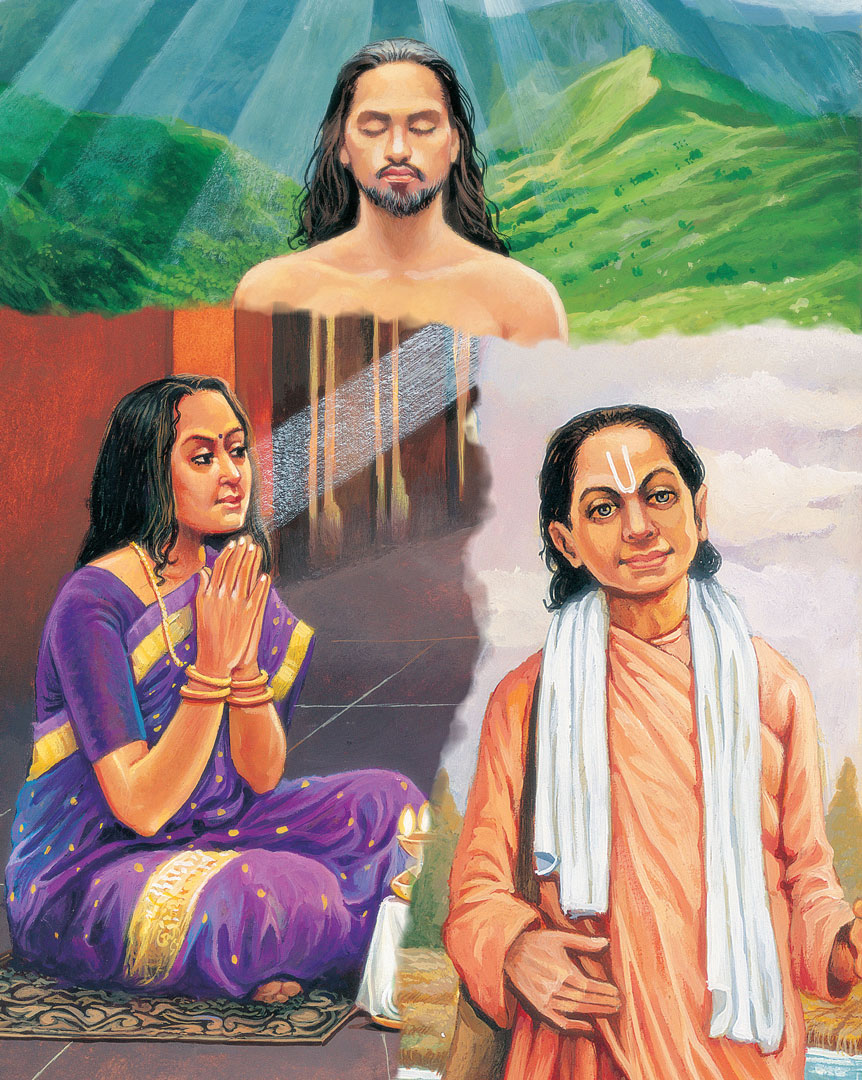

यजन्ते सात्त्विका देवान्यक्षरक्षांसि राजसा: |
प्रेतान्भूतगणांश्चान्ये यजन्ते तामसा जना: || 4||
yajante sāttvikā devān yakṣha-rakṣhānsi rājasāḥ
pretān bhūta-gaṇānśh chānye yajante tāmasā janāḥ
yajante sattvika devan yaksha-rakshansi rajasah
pretan bhuta-ganansh chanye yajante tamasa janah
BG 17.4: Those in the mode of goodness worship the celestial gods; those in the mode of passion worship the yakṣhas and rākṣhasas; those in the mode of ignorance worship ghosts and spirits.

Start your day with a nugget of timeless inspiring wisdom from the Holy Bhagavad Gita delivered straight to your email!
It is said that the good are drawn to the good and the bad to the bad. Those in tamo guṇa are drawn toward ghosts and spirits, despite the evil and cruel nature of such beings. Those who are rājasic get drawn to the yakṣhas (semi-celestial beings who exude power and wealth) and rākṣhasas (powerful beings who embody sensual enjoyment, revenge, and wrath). They even offer the blood of animals to appease these lower beings, with faith in the propriety of such lowly worship. Those who are imbued with sattva guṇa become attracted to the worship of celestial gods in whom they perceive the qualities of goodness. However, worship is perfectly directed when it is offered to God.